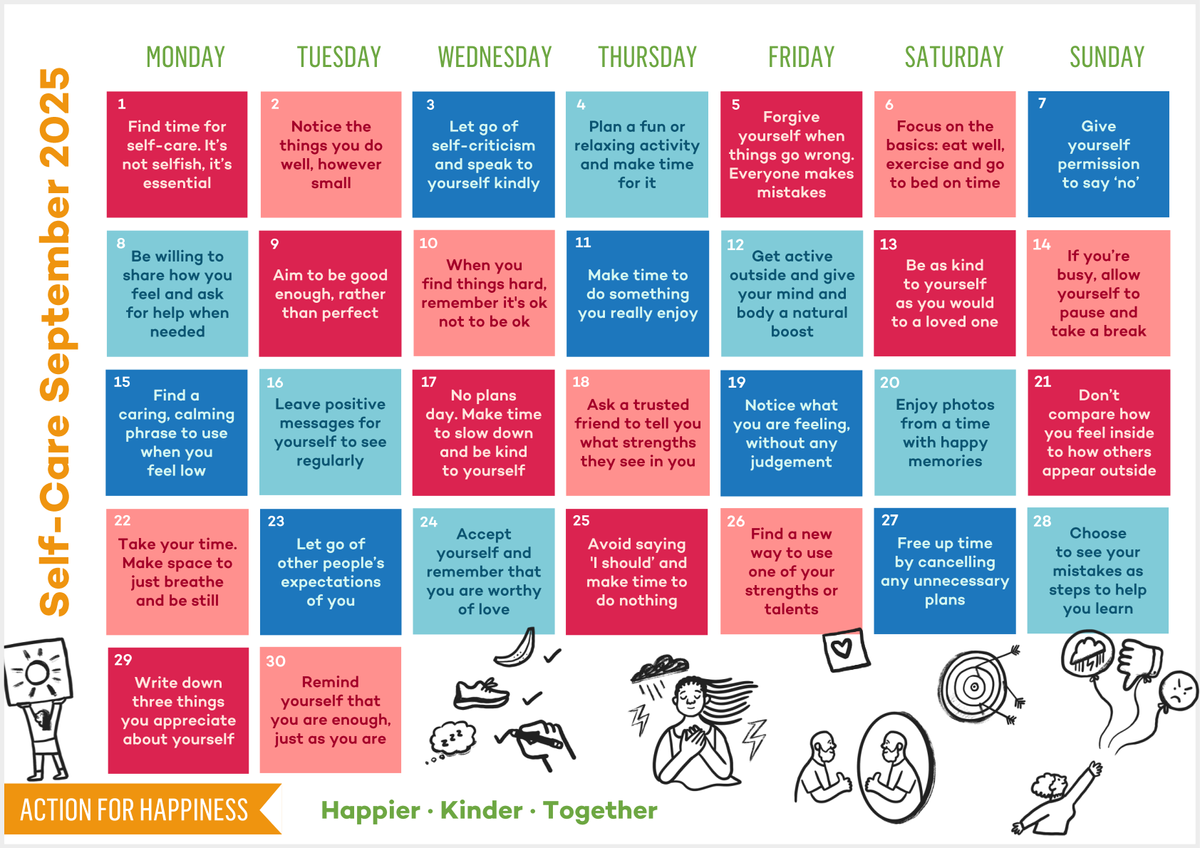Wellbeing

A message from Emily Murcott - Assistant Principal / Mental Health and Wellbeing Leader
In this newsletter you will find:
- Being safe when learning and playing online
- Self-Care September
Being safe when learning and playing online
All parents want their children to be safe when learning and playing online. These short videos, easy-to-read advice sheets and conversation starters will help you to talk with your child about online safety. They include tips to help them stay safe, and important information about what to do if something bad happens online.
Helping your family stay safe online
Learn how to keep your family safe online, including:
- Why online safety is important
- How eSafety can help
- Setting up family online safety rules
- Conversation ideas and tips.
https://vimeo.com/737803724?fl=pl&fe=sh
Getting started with social media
Understand social media for children and young people, so you can:
- Talk with your child about social media
- Set up their online account
- Use social media safely
- Report problems.
https://vimeo.com/737802392?fl=pl&fe=sh
Safer online gaming
Make gaming a safe and enjoyable part of family life, by learning about:
- Setting up games so they are safe
- Making friends in games
- Reporting issues in games.
https://vimeo.com/737822623?fl=pl&fe=sh
Getting help when your child is being bullied online
Learn how to support your child if they are being bullied online, including how to:
- Recognise online bullying
- Collect information about the bullying
- Report online bullying.
https://vimeo.com/737815075?fl=pl&fe=sh
Getting help for child sexual abuse online
'Every online safety conversation matters' card and advice sheet
eSafety developed these resources in partnership with the Australian Centre to Counter Child Exploitation (ACCCE). They will help you discuss online safety with your child - including their online interests, dealing with uncomfortable or unsafe situations, getting help from trusted adults and reporting abuse.
Getting help
If you think your child might be experiencing child sexual abuse, there are things you can do to help.
- Stay calm. Listen and believe them.
- If the child is in Australia and is in immediate danger, call Triple Zero (000) or your local police on 131 444.
- Any type of suspected child sexual abuse or exploitation, including grooming, should be reported to the Australian Centre to Counter Child Exploitation (ACCCE)External link. The child can make a report themselves, an adult can help them, or you can make an anonymous report at crimestoppers.com.auExternal link or 1800 333 000.
- Anyone can report online child sexual exploitation and abuse material to eSafety at any time, so we can have it removed. Your report can be anonymous.
- Anyone whose nude or sexual image or video has been shared online without their consent can report it to eSafety, so we can have it removed.
- The TakeItDownExternal link tool can provide a secure, anonymous way to prevent sexual images or videos being uploaded and shared on a range of online platforms and services.
There are many counselling and support services that help children who have experienced sexual abuse, including grooming, and their families. These are listed on the ACCCE websiteTaken from – eSafety Commissioner
Self-Care September
Regards,
Emily Murcott

